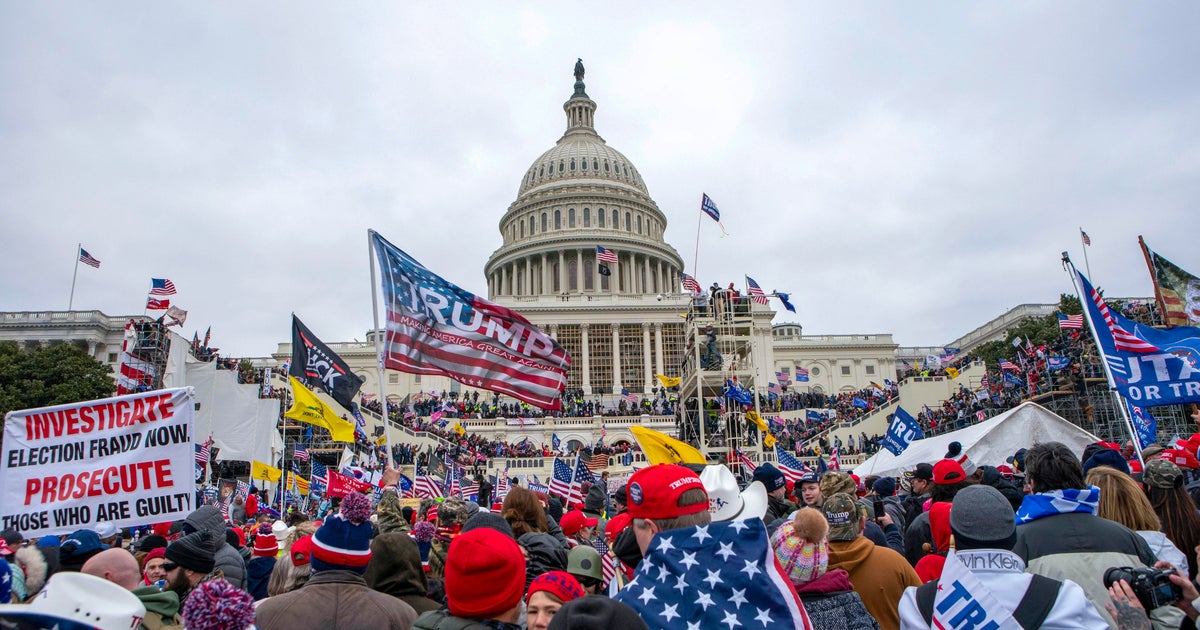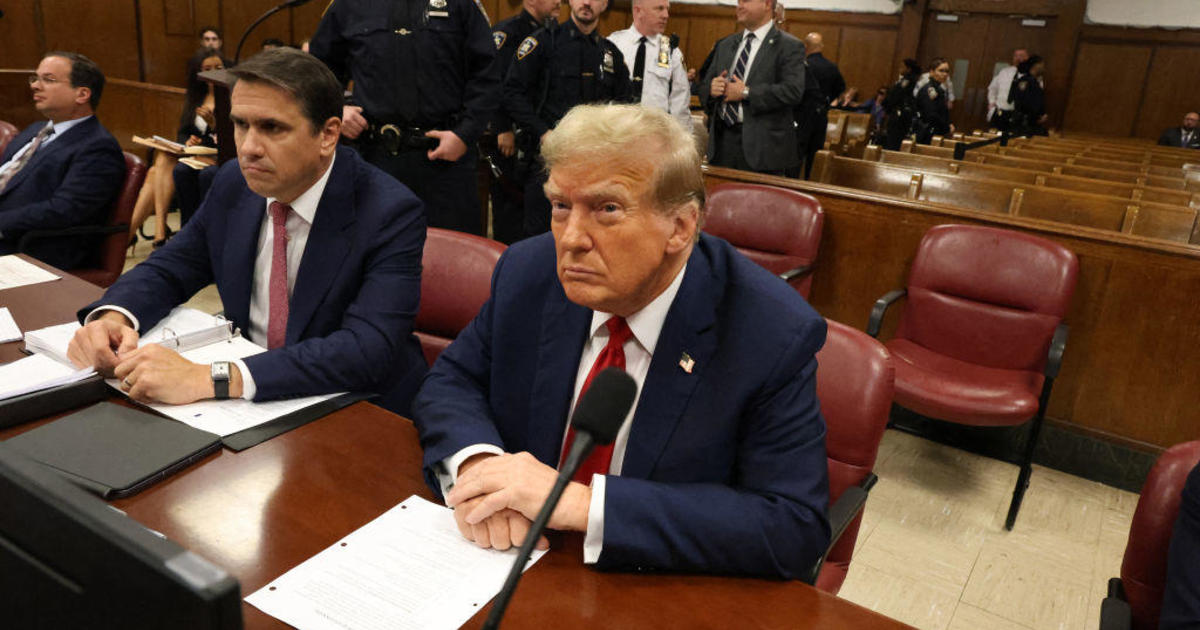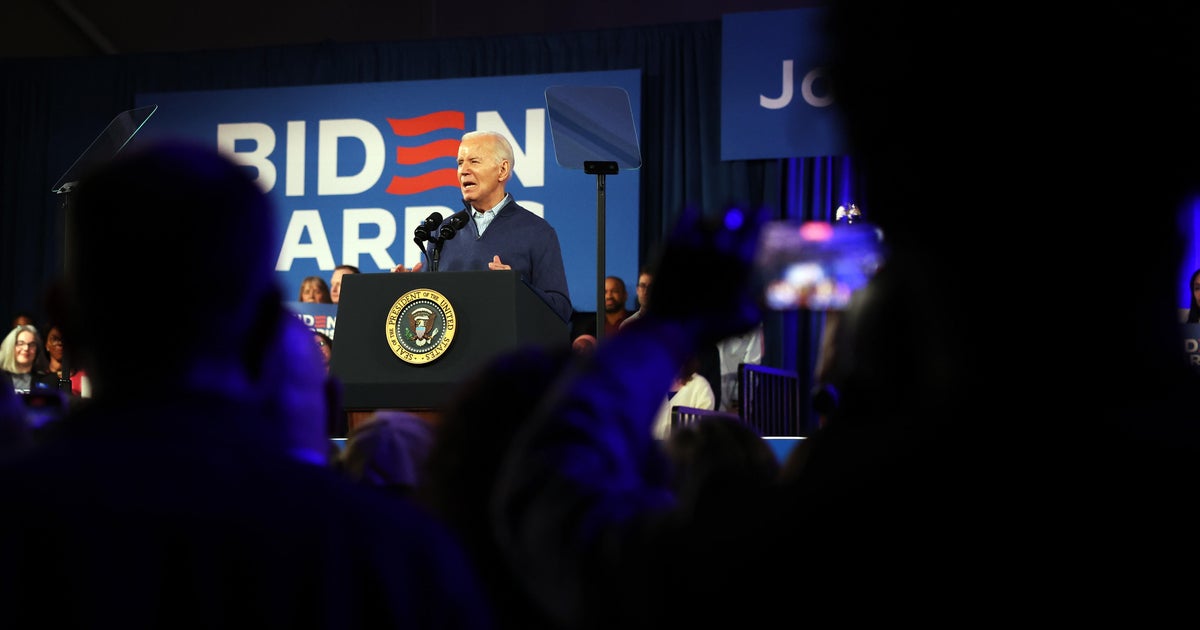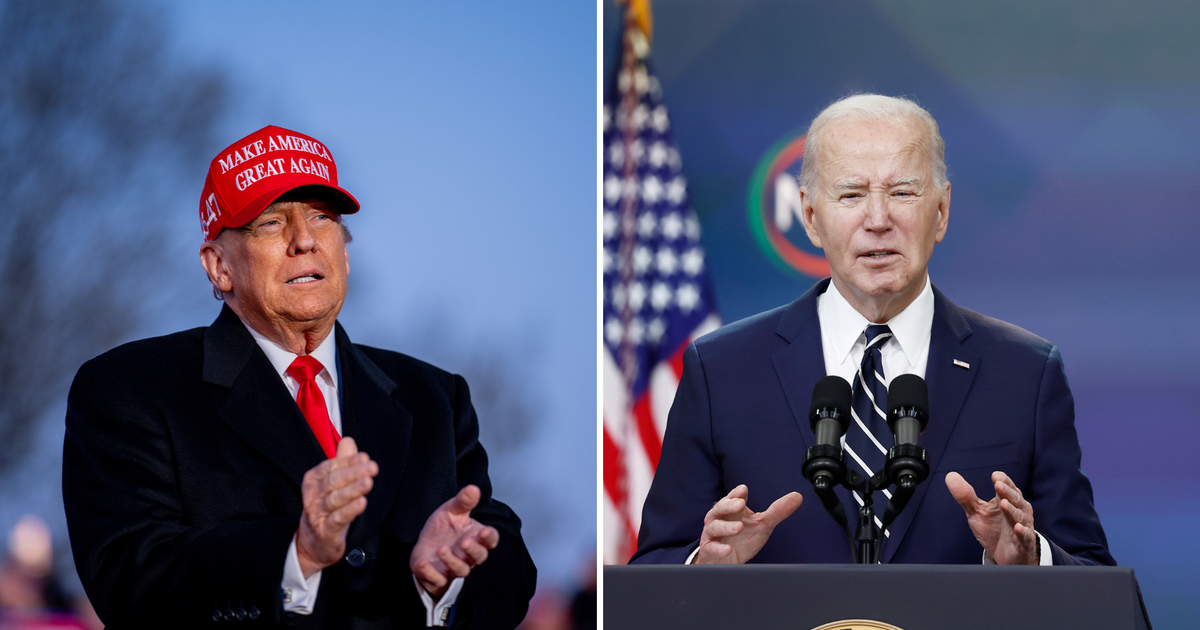10 times Trump may have obstructed justice, according to Mueller
Editor's note: Former special counsel Robert Mueller is testifying on Capitol Hill on Wednesday to discuss the findings of his report on Russian interference in the 2016 campaign. The following story was originally published on April 18, 2019, when the report was released.
Although the special counsel's report on Russian interference does not come to a conclusion as to whether President Trump obstructed justice, Robert Mueller's team did examine 10 "discrete acts" in which he may have done so.
The report says these 10 instances can be divided into "two phases, reflecting a possible shift in the president's motives." The first phase took place before Mr. Trump fired his first FBI director, James Comey, after he had been reassured he was not personally under investigation. After Comey's dismissal and Mueller's appointment as special counsel, the report indicates, the president knew he was now under investigation for possibly obstructing justice, and switched gears.
"At that point, the president engaged in a second phase of conduct, involving public attacks on the investigation, non-public efforts to control it, and efforts both in public and private to encourage witnesses not to cooperate with the investigation," the report states.
Here are the 10 times, according to the Mueller report, that Mr. Trump may have obstructed justice.
"Conduct involving FBI Director Comey and Michael Flynn"
The first instance of possible obstruction involves Mr. Trump's first national security adviser, Michael Flynn, who left the administration just weeks into Mr. Trump's presidency after he misled FBI agents and top administration officials — including Vice President Mike Pence — about his conversations with Russian Ambassador Sergey Kislyak. Flynn had said he had not discussed sanctions on Russia with Kislyak, a lie that Pence and others then repeated.
The day that Mr. Trump found out Flynn had lied to Pence and the FBI, he had dinner with Comey, whom he asked for "loyalty." Mr. Trump then secured Flynn's resignation on Feb. 13, 2017. "Now that we fired Flynn, the Russia thing is over," he told an outside adviser, who disagreed with the president's assessment.
That same day, Mr. Trump had another meeting with Comey and encouraged him to stop investigating Flynn. "I hope you can see your way clear to letting this go, to letting Flynn go. He is a good guy. I hope you can let this go," Mr. Trump said.
The president then asked Deputy National Security Adviser K.T. McFarland to draft an internal memo "stating that the president had not directed Flynn to discuss sanctions with Kislyak. McFarland declined because she did not know whether that was true, and a White House Counsel's Office attorney thought that the request would look like a quid pro quo for an ambassadorship she had been offered."
"The President's reaction to the continuing Russia investigation"
The second instance involves then-Attorney General Jeff Sessions, who was debating whether to recuse himself from the Russia investigation in February 2017, as well as Comey. Mr. Trump asked White House Counsel Don McGahn to talk Sessions out of recusal, and became angry when Sessions announced he would recuse himself on March 2. The president then asked Sessions to "unrecuse" himself.
After Comey testified to Congress that there was an FBI investigation into Russian interference in the 2016 election, Mr. Trump reached out to his CIA and NSA directors to help "dispel the suggestion that the President had any connection to the Russian election-interference effort." Comey had told Mr. Trump he wasn't under investigation and, against McGahn's advice, the president twice called the FBI director to ask him to say that publicly.
"The President's termination of Comey"
The third instance stems from Mr. Trump's decision to fire Comey, which directly led to Mueller's appointment. Mr. Trump decided to fire Comey in May 2017 — days after the FBI director declined to tell Congress that Mr. Trump wasn't under investigation.
After Mr. Trump dismissed Comey, the White House insisted he had done so at the recommendation of the Department of Justice. In reality, Mr. Trump had not consulted with the Justice Department before deciding to fire Comey.
In conversations that followed, Mr. Trump indicated the Russia investigation was the real reason he had let Comey go: "The day after firing Comey, the president told Russian officials that he had 'faced great pressure because of Russia,' which had been 'taken off' by Comey's firing. The next day, the president acknowledged in a television interview that he was going to fire Comey regardless of the Department of Justice's recommendation and that when he 'decided to just do it,' he was thinking that 'this thing with Trump and Russia is a made-up story.'"
"The appointment of Special Counsel and efforts to remove him"
The fourth instance revolves around Mr. Trump's reaction to Mueller's appointment. Upon hearing the news that Deputy Attorney General Rod Rosenstein had tasked Mueller with investigating the Russia matter in May 2017, the president privately declared it was "the end of his presidency." Mr. Trump then demanded Sessions' resignation, although he did not accept it at the time, and told aides Mueller had conflicts of interest that should preclude him from acting as the special counsel.
It was then reported in June that Mueller was investigating Mr. Trump for obstruction of justice, prompting the president to publicly attack Mueller and the Justice Department. Within days of the first report, he told McGahn to tell Rosenstein that Mueller had conflicts of interest and must be removed.
McGahn ignored the request, explaining that he would rather resign.
"Efforts to curtail the Special Counsel's investigation"
The fifth instance concerned a meeting between Mr. Trump and former campaign manager Corey Lewandowski in the Oval Office in June 2017, two days after the president told McGahn to have Sessions removed. Mr. Trump "dictated a message for Lewandowski to deliver to Sessions," the report says. The message instructed Sessions to publicly state the Mueller probe was "very unfair" and its scope would be limited to examining "election meddling for future elections."
In a meeting a month later, Mr. Trump asked Lewandowski about the status of the message, and Lewandowski, who was not a government employee, said it would be delivered soon. He instead asked Rick Dearborn, a White House official, to deliver it to Sessions. "Dearborn was uncomfortable with the task and did not follow through," Mueller wrote.
"Efforts to prevent public disclosure of evidence"
The sixth instance stems from the June 2016 meeting between top campaign aides and "a Russian lawyer who was said to be offering damaging information about Hillary Clinton as 'part of Russia and its government's support for Mr. Trump.'"
Mr. Trump told his aides "not to publicly disclose the emails setting up the June 9 meeting, suggesting that the email would not leak and that the number of lawyers with access to them should be limited." Donald Trump Jr., who had been present at the Trump Tower meeting, wrote a press release saying "the meeting was with 'an individual who [Trump Jr.] was told might have information helpful to the campaign'" — a line that was edited out about the president.
Mr. Trump's personal lawyer then denied to reporters the president had "played any role" in Trump Jr.'s statement.
"Further efforts to have the Attorney General take control of the investigation"
The seventh instance has to do with Mr. Trump's repeated attempts to have Sessions "reverse his recusal." Mr. Trump asked Sessions to do this in the summer of 2017. The following December, Mr. Trump told Sessions he would be a "hero" if he took control of the investigation.
Additionally, in October 2017, the president asked Sessions to "take [a] look" at investigating Hillary Clinton.
"Efforts to have McGahn deny that the President had ordered him to have the Special Counsel removed"
The eighth instance concerns Mr. Trump's efforts to get McGahn to dispute press accounts that the president had instructed him to try and get rid of Mueller. In early 2018, Mr. Trump told White House officials to tell McGahn to rebut the stories, but McGahn told the officials the stories were true. Mr. Trump then personally appealed to McGahn, telling him in an Oval Office meeting to deny the reports.
"In the same meeting, the president also asked McGahn why he had told the special counsel about the president's efforts to remove the Special Counsel and why McGahn took notes of his conversations with the president," the report states. "McGahn refused to back away from what he remembered happening and perceived the president to be testing his mettle."
"Conduct towards Flynn, Manafort, [Redacted]"
The ninth instance stems from Mr. Trump's response to the prosecutions of Flynn and Paul Manafort, his former campaign chairman, as well as an individual whose identity was redacted.
"After Flynn withdrew from a joint defense agreement with the president and began cooperating with the government, the president's personal counsel left a message for Flynn 's attorneys reminding them of the president's warm feelings towards Flynn, which he said 'still remains,' and asking for a 'heads up' if Flynn knew 'information that implicates the president,'" the report states.
"When Flynn's counsel reiterated that Flynn could no longer share information pursuant to a joint defense agreement, the president's personal counsel said he would make sure that the president knew that Flynn's actions reflected 'hostility' towards the president."
Meanwhile, Mr. Trump praised Manafort during his "prosecution and when the jury in his criminal trial was deliberating." At one point, he praised Manafort as "a brave man" who refused to "break."
"Conduct involving Michael Cohen"
The tenth and final instance of potential obstruction concerns Mr. Trump's behavior toward Michael Cohen, his onetime personal lawyer. Mr. Trump profusely praised Cohen when he remained loyal to the administration, at one point personally calling to encourage him to "stay strong," only to criticize him viciously when he began cooperating with the government.
"After the FBI searched Cohen's home and office in April 2018, the president publicly asserted that Cohen would not 'flip,' contacted him directly to tell him to 'stay strong,' and privately passed messages of support to him," the report states.
"Cohen also discussed pardons with the president's personal counsel and believed that if he stayed on message he would be taken care of. But after Cohen began cooperating with the government in the summer of 2018, the president publicly criticized him, called him a 'rat,' and suggested that his family members had committed crimes."
Editor's note: This story has been updated to remove an instance during the campaign in which Mr. Trump was not directly implicated in potential obstruction, and to include the instance in which he asked Lewandowski to deliver a message to Sessions.




